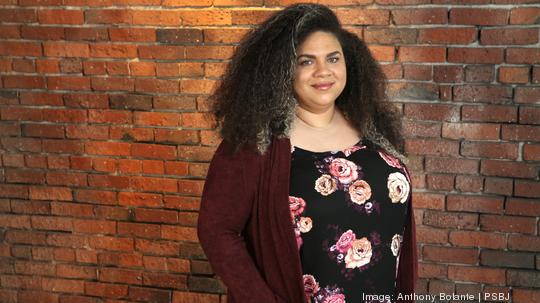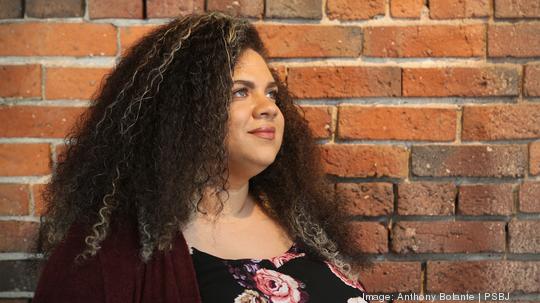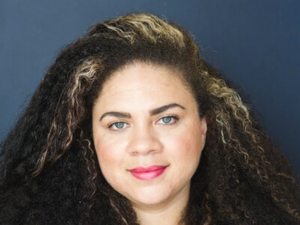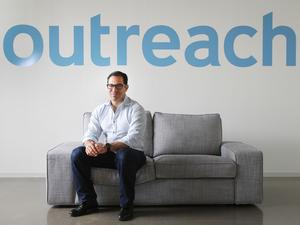
Marli Tarbaux, vice president of people and culture at Seattle-based real estate tech startup Flyhomes, handles human resources, talent acquisition, and learning and development for the growing startup.
For a company that more than doubled its headcount to about 820 employees in seven months, Tarbaux’s role “has been a wild ride” and presented unique challenges.
“I’m very heavily involved in how we’re actually attracting that talent through our recruiting process,” Tarbaux says. “Once we have them, how are we training them, onboarding them, making them successful through learning and development?”
A major part of Tarbaux’s mission is creating a diverse workforce where everyone feels empowered to collaborate.
Flyhomes, which helps homebuyers present all-cash offers, raised $150 million in June and has raised $190 million since it was founded in 2016. The company counts Norwest Venture Partners, Andreessen Horowitz and Zillow co-founder Spencer Rascoff as investors, among others.
The Business Journal sat down with Tarbaux to talk about maintaining company culture, the company’s rapid growth and her musical talents.

Marli Tarbaux
Vice president of people and culture at Flyhomes
- Hometown: Redlands, California
- Current residence: Manchester (Kitsap County)
- Education: Bachelor’s degree at The University of California, Santa Barbara; master’s at The Chicago School of Professional Psychology
- Favorite activities outside of work (not including music): Spending time with family (she has three kids, a husband and two dogs: a Great Dane named Optimus and a Great Pyrenees named Willow), hiking, cooking and gardening (they have a garden that grows tomatoes, peppers, corn, potatoes and squash)
What are some of the secrets to finding and retaining talent? Given that we’re in a more hybrid working environment now, we have utilized talent that is distributed, which has really unlocked a lot of talent for us. That’s been one piece to truly dig into what key competencies will make candidates successful within each job. That’s really step one. Once we find really qualified candidates that have whatever skills we’re looking for or knowledge and abilities that we’re looking for, the bigger part is interviewing them to ensure that they’re aligned with the values that we all live every day.
How has it been trying to build culture at a startup during the pandemic? To say that it’s been difficult would be an undersell. It’s really hard when we don’t have the opportunity to get together face-to-face because there is some magic in that that you can’t recreate virtually no matter how many Zoom meetings or happy hours we have. But I think a big part of how we’ve been successful in growing quickly and still maintaining that culture goes back to ensuring we had that piece of the interview process where we were actually ensuring that people aligned with our values.
The company had around 350 to 400 employees in June but now has roughly 820. What have been the challenges in growing so quickly? The biggest challenges are around maintaining culture and ensuring people are connected and feel connected. The other piece is the actual training and onboarding, so ensuring that they’re successful when they get started.
You came from a visual communications firm, Killer Visual Strategies. How does that impact your work now? When I was at KVS, we went through an acquisition in 2018. We went from being one small company to joining seven other companies and becoming what’s now called Material. Going through that experience of rapid growth overnight has set me up to identify challenges before they occur, and thankfully at Flyhomes I have the ability to grow, while still at a rapid pace, a little bit more drawn out.
What is one thing your employees and co-workers don’t know about you? I play many instruments, but my main instrument is the stand-up bass.
How did you get into that? I started in orchestra as a kid. I actually started with violin and decided I didn’t like it that much, so let’s go to the polar opposite end of the spectrum and get the biggest instrument possible and just fell in love with the stand-up bass. I also play cello, violin and electric bass, all of that great stuff, but my heart is with the stand-up.
This interview has been edited for length and clarity.








